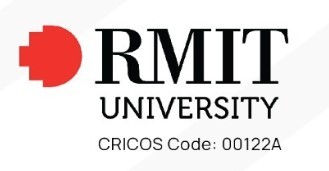
Bachelor of Health and Biomedical Sciences (Honours)


Overview
Duration
FULL-TIME 1 YEAR
FULL-TIME 1 YEAR
Scholarship
YES
YES
Fee
AU$42,240
AU$42,240
Intake
FEBRUARY
FEBRUARY
Overview
- This degree has been designed to equip you with a transferable skill-set relevant for a future career in academic and applied research, diagnostic services, industry, medical marketing, scientific communication and many other STEM-related careers.
- It is a unique supervisor-guided independent research project with complimentary workshops in research methods and scientific communication appropriate to your chosen research discipline. Specifically, the benefits of an honours degree are:
- learning advanced problem-solving skills
- developing science communication skills in parallel with critical and independent thinking
- developing an aptitude for independent research and research techniques
- gaining advanced knowledge in your scientific discipline.
- The transferable skills and independent research experience gained as part of this honours degree are unique from those learnt during undergraduate studies. These skills and experiences are required for future higher degree by research study, and are expected in most academic and research positions. Many non-academic employers also recognise these skills as highly desirable in prospective employees. In consultation with the program coordinator and your potential supervisor, you’ll be allocated a project that aims to complement your skills and areas of interest.
Inquire Now
Career
- Graduates of this honours degree often advance to a Masters or PhD degree and undertake further research in their particular area of interest.
- This pathway can also build a solid foundation for a future career in biomedical, allied and applied health sciences, including:
- basic and applied research
- diagnostic services
- industry
- government.
Entry Requirement
- To study this course you will need to complete one of the following English proficiency tests:
- IELTS (Academic): minimum overall band of 6.5 (with no individual band below 6.0)
- TOEFL (Internet Based Test - IBT): minimum overall score of 79 (with minimum of 13 in Reading, 12 in Listening, 18 in Speaking and 21 in Writing)
- Pearson Test of English (Academic) (PTE (A)): minimum score of 58 (with no communication band less than 50)
- Cambridge English: Advanced (CAE): minimum of 176 with no less than 169 in any component.
Start your journey with landmark today!
Find your perfect course
Answer a few questions and
our course matcher will do the rest
Head Office
Level 5, IT Plaza
Kamaladi, Kathmandu
Tel: +977 14542781, 9845566225
E-mail: info@landmarkedu.com
Kamaladi, Kathmandu
Tel: +977 14542781, 9845566225
E-mail: info@landmarkedu.com
Sydney office
Suite 1 Level 1,
46 Macquarie Street,
Parramatta, NSW
Tel: +61 415 122 814
46 Macquarie Street,
Parramatta, NSW
Tel: +61 415 122 814
Branch office
Sahidchowk, Chitwan
Tel: 056-590825
Tel: 056-590825
Mahendrachowk, Biratnagar
Tel: 021-590828
Tel: 021-590828
Level 2, Milanchowk, Butwal, Rupandehi
Tel: 977-71-591694
Tel: 977-71-591694
© Landmark Education. All rights reserved.


